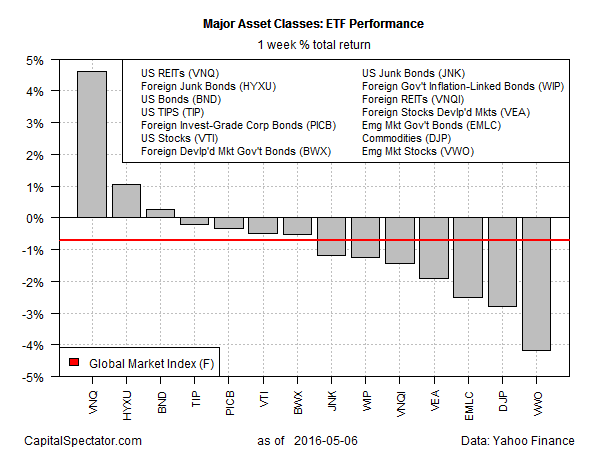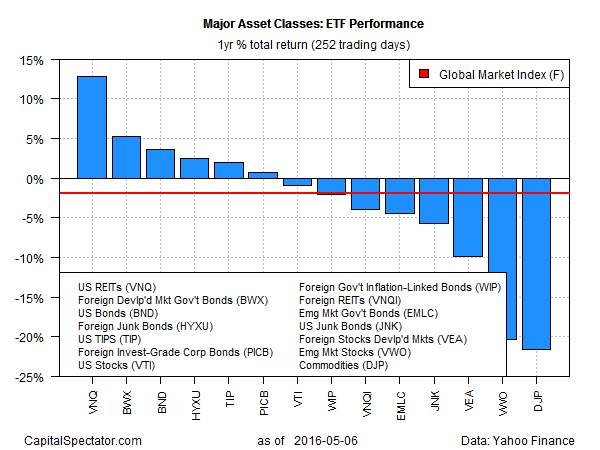Markets delivered widely divergent performance results last week, based on a set of proxy ETFs. US real estate investment trusts (VNQ) surged 4.6% for the five trading days through May 6, posting the strongest total return by far among the major asset classes. Meanwhile, emerging market stocks (VWO)–the worst performer–tumbled a hefty 4.2% last week in total return terms.
Most of the field suffered of a loss last week, which weighed on an ETF-based version of the Global Markets Index (GMI.F), an investable, unmanaged benchmark that holds all the major asset classes in market-value weights. GMI.F eased 0.7% for the week through May 6.

The year-over-year results remain mixed as well. US REITs, however, are in the winner’s column on this front too, posting an annual gain of nearly 13% for the 12 months through last Friday. The runner-up isn’t even close: foreign developed-market governments bonds (BWX) are ahead by 5.2% for the trailing one-year period—a second-place finish that’s far behind VNQ’s strong year-over-year rise.

What’s the source of the crowd’s renewed interest in REITs? The relatively rich yield is probably a factor at a time when worries about disinflation and slow growth are taking a toll on market sentiment… again. As such, VNQ’s 4.3% trailing yield for the past 12 months (via Morningstar’s estimate) looks attractive—more than double the rate of the 1.79% benchmark 10-year Treasury yield as of May 6.
The yield premium with REITs appears to be in no immediate danger of competition from rising Treasury rates, or so Friday’s softer-than-expected rise in nonfarm payrolls in April suggests. As Reuters reported last week after the release of the jobs data, “Wall Street’s top banks have all but abandoned any expectation that the Federal Reserve will raise interest rates in June.”
Maybe so, but don’t count out a rate hike in 2016’s second half, says New York Fed President Bill Dudley. He told The New York Times on Friday that it’s a “reasonable expectation” that the Fed will raise increase its benchmark rate twice before the year is out. “I think the general story of the economy over the last few years is very much intact,” he explained. “I think we’re still on track.”









Leave A Comment